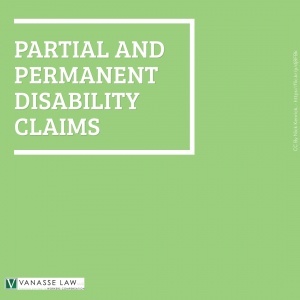Need Immediate help? Call 717-397-1010
After Hours Call / Text 717-471-2168
Need Immediate help? Call 717-397-1010
After Hours Call / Text 717-471-2168

It is sometimes difficult to envision an injury occurring in an office environment. After all, when you picture an office you think of cubicles, office chairs, and copier machines — all things that rarely represent a risk. Still, there are a surprisingly high number of workers’ compensation claims submitted for injuries that occur in these settings. People can slip and fall, they can be victims of office furniture tumbling over or drawers carelessly left open. Chairs can break, individuals can hurt themselves trying to lift heavy objects, and sitting at a desk and typing on a computer for hours at a time can lead to repetitive stress injury. If you have suffered an injury or illness that occurred at the office, then you are entitled to workers’ compensation, a benefit provided specifically for those who have been hurt at work. Workers’ compensation is supposed to be a no-fault process that allows the injured employee to receive compensation without assigning blame. Unfortunately, it can still be a difficult process, as employers and their insurance companies often deny claims. If you have been injured on the job and need assistance getting the benefits you deserve, Vanasse Law can help.
There are several common injuries that occur at the office. Some are a result of the nature of office work, as employees that spend most of their time inside and seated can often suffer from back and neck pains, pain in the hands and wrists, and even vision strain from staring at a computer for hours on end. Others are simply the same injuries that can happen in any setting. Here are the office injuries that we most frequently see and represent:
No matter what the cause of your injury, if you have been hurt or sickened at the office then you may be entitled to compensation for your medical expenses, as well as any time that you need to take away from the office for recovery. If you need assistance in preparing a claim, gathering documentation or appealing a denial, call the attorneys at Vanasse Law today. We know how to fight for your rights.

In the state of Pennsylvania, when you have suffered an injury or illness at work you are generally entitled to workers’ compensation. This benefit provides reimbursement for medical expenses, as well as a portion of the salary that you lose as a result of having to spend time out of work for recuperation and recovery. In some instances, the Pennsylvania Workers’ Compensation Act has established very specific compensation amounts based on suffering particular losses. Among these pre-established specific losses, awards are those that have been set aside for the loss of a body part. If you have been injured and work and it has resulted in the loss of a limb, workers’ compensation will not be able to fully reimburse you for your disability: but the state has recognized the change that this type of injury represents, and as a result, it has offered these values so that people will not need to argue or fight the insurance companies. The Lancaster law firm of Vanasse Law has successfully represented many workers who have suffered this type of injury, ensuring that they get the benefits to which they are entitled.
If you have suffered the loss of a limb or body part, workers’ compensation provides for both a healing period and an additional number of weeks that they will pay benefits. For that time period, you will receive a weekly check that represents a percentage of what your average weekly wage was at the time of the injury. The time periods are shown here:
Body Part Lost Healing Period (weeks) Benefits Paid (weeks)
Hand 20 335
Forearm 20 370
Arm 20 410
Foot 25 250
Lower Leg 25 350
Leg 25 410
Thumb 10 100
First Finger 6 50
Second Finger 6 40
Third Finger 6 30
Fourth Finger 6 28
Big Toe 12 40
Other Toes 6 16
There are both advantages and disadvantages to these pre-established benefits having been created by the state. If you have suffered one of these losses and feel that you have recovered enough to return to your work responsibilities in a time period shorter than the period that the state provides, you are still able to receive the loss of body part benefit, even if you have returned to work. However, by contrast, if you have been severely harmed and do not feel ready to return to work after the compensation period ends, your employer is able to cite the maximum time period and stop making payments.
Losing a limb can be both physically damaging and emotionally traumatic, and if it has happened to you then you are entitled to workers’ compensation benefits. You also may be able to pursue other responsible parties beyond your employer. The attorneys at Vanasse Law are experienced, compassionate workers’ compensation lawyers who are able to help you explore all of your options. Contact us today to learn more.

Though many people would assume that people who work in settings such as construction sites or manufacturing facilities are at the highest risk for worksite accidents, the truth is that it is the people who work in the healthcare and social assistance industry that are exposed to the most serious safety and health hazards. Though some of their risks come from illness, there is also a high risk for healthcare workers to be involved in workers’ compensation accidents for which they need to seek benefits. If you are a healthcare worker who has been injured on the job and you need assistance in preparing a workers’ compensation claim, or need information on your rights, contact the Lancaster law firm of Vanasse Law. We have the experience and knowledge that you need.
The range of accidents that healthcare workers are at risk of experiencing is broad, and much of it depends upon the environment in which they work. Healthcare workers can be found in hospitals and clinics, dental offices and laboratories, emergency medical care offices, nursing homes, and individual patient homes, among other locations. They face exposure to pathogens and biological hazards, chemical and drug exposures, ergonomic hazards from repetitive tasks or lifting heavy objects or patients, and exposure from materials in laboratories or x-ray equipment.
According to the Occupational Safety and Health Administration (OSHA), hospitals are actually one of the most hazardous places to work, with an average of nearly 60,000 work-related injuries and illnesses in a year. Musculoskeletal injuries are extremely prevalent, and out of all the different types of healthcare workers, it is most commonly seen in nursing aides, attendants, and orderlies who are responsible for lifting, repositioning, and transferring patients who have limited mobility. But in addition to medical staff, healthcare workers include housekeeping, food service employees, building and maintenance staff, and administrative staff. There are unique risks involved in working in healthcare, where employees are generally dedicated to the health and safety of others over their own and may be required to respond to unpredictable events quickly. There is a risk of everything from an accidental needle stick to a violent outburst from a patient.
Of all the injuries suffered by healthcare workers in workplace accidents, the most common cause is overexertion and bodily reaction. These generally involve lifting, bending, or reaching. Second to those injuries are sprains and strains, which ended up resulting in the highest dollar workers’ compensation claims. Others include fractures, trauma, and cuts and punctures.
If you are a healthcare worker who has been injured on the job and you believe that you are entitled to workers’ compensation, the Lancaster law firm of Vanasse Law can help. We have extensive experience in helping successfully apply for and win workers’ compensation benefits, and we are ready to provide you with the assistance that you need.

In the state of Pennsylvania, an employee who suffers a workplace injury is entitled to a number of different benefits from workers’ compensation. Generally speaking, these benefits are broken down into two major categories – medical bills and lost wages. The medical expenses that are covered can include out-of-pocket expenses for doctor visits, surgery, hospital expenses, diagnostic tests, prescription drugs, and other medications, prostheses, orthopedic devices, physical therapy, and medical supplies. If, in addition to requiring medical care, your injury prevents you from fulfilling your normal job responsibilities or from returning to work, it can also provide a replacement of a portion of your lost income, and there are different types of lost wage payments that can be made depending on how bad your injury is. The attorneys at Vanasse Law can help you understand the workers’ compensation system to make sure that you get the type of compensation that is appropriate for your situation.
In Pennsylvania, income replacement benefits are broken down into four major categories. These are:
• Temporary Partial Disability Benefits: If your injuries are severe enough that they prevent you from returning to your normal work, but you are able to perform some other type of job duty or work fewer hours, then you will probably receive temporary partial disability benefits. These provide you with two-thirds of the difference between what you were paid before your injury and what you are being paid for the work you are doing now. The benefits can be paid for up to 500 weeks.
• Permanent Partial Disability Benefits: If it is determined that you have recovered as much as you are going to, but the injury or illness still has so much of an impact that you cannot return to your old job responsibilities and have to continue working at a reduced capacity, you may qualify for permanent partial disability benefits. These permanently provide you with two-third of the difference between what you were paid before your injury and what you are being paid for the work you are doing now.
• Temporary Total Disability Benefits: If you are unable to return to work as a result of your injury, you may be eligible to receive two-thirds of the average weekly wages you received before your injury for the period of time between filing your claim and when you can return to work.
• Permanent Total Disability Benefits: If it is determined that you will never be able to return to work because your injuries or illness are so severe, then you may be eligible to receive permanent total disability benefits, which provide two-thirds of the average weekly wages you were earning before the injury on a permanent basis.
The payments that you receive for disability payments can be affected by other factors, including receiving Social Security Disability payments or other sources of income. For a better understanding of the benefits, you can receive and legal representation that provides you the ability to get the maximum compensation available to you, contact the Lancaster law firm of Vanasse Law.